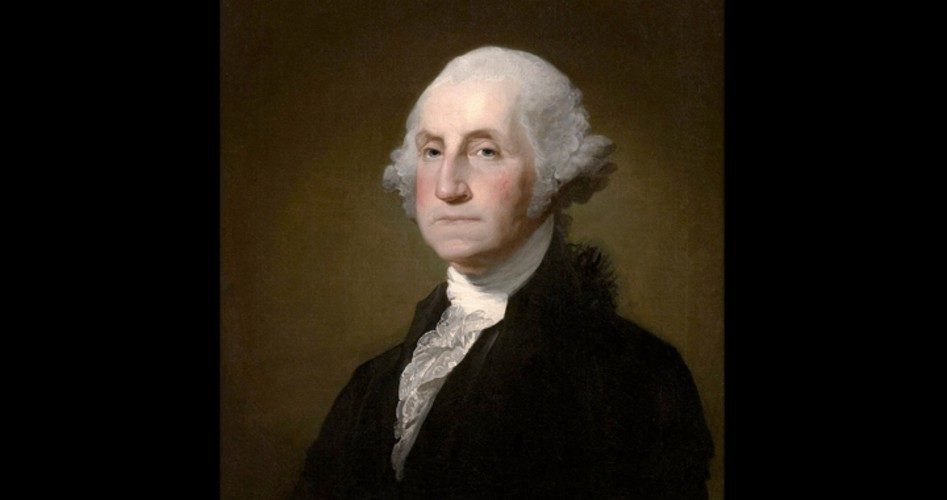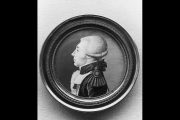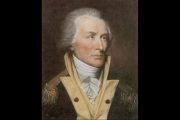
As unbelievable as it may seem, there are yet letters written by the leading lights of the Founding Generation that have not come to light. So it is with great delight that just days ago a letter written by the Founding Father — George Washington — was made public for the first time.
Offered at auction by the Raab Collection, Washington’s letter is remarkable per se, but the content of that communication is noteworthy for more than just its age and its author.
Written on September 7, 1788 to Richard Peters, speaker of the Pennsylvania House, the letter leaves little doubt about George Washington’s opinion of the influence of “Divine Providence” on the drafting of the Constitution and his confidence that God would continue guiding the American people in their efforts to secure the blessings of liberty protected by the Constitution that had been ratified by the necessary number of states only two months prior to penning this letter.
“But that Providence which has hitherto smiled on the honest endeavours of the well meaning part of the People of this Country will not, I trust, withdraw its support from them at this crisis,” Washington wrote.
“Washington, who was the General in Chief of the Continental Army during the war and President of the Constitutional Convention makes a remarkable statement in this powerful letter: his victory in battle and his stewardship over the Convention that led to our Constitution came with the guiding influence of a higher power,” said Nathan Raab, president of the Raab Collection, in a statement.
“We are not aware of any other letter of Washington casting divine influence on the passage of the Constitution,” Raab added, referencing that rarity of the pious tone of Washington’s remarks regarding the framing of the Constitution.
Any testimony given by a member of the pantheon of American Founding Fathers on the assistance of the Almighty in the establishment of the Constitution is interesting and inspiring. In this recently released missive, however, Washington warns of a danger he saw threatening the peace and prosperity that was only recently restored to the people of America. General Washington identified a second convention of states as an existential threat.
“It would seem from the public Gazettes that the minority in your State are preparing for another attack of the — now adopted Government; how formidable it may be, I know not. But that Providence which has hitherto smiled on the honest endeavours of the well meaning part of the People of this Country will not, I trust, withdraw its support from them at this crisis,” Washington wrote to Peters.
Peters’s home state was among the several advocating for an additional convention to “repair the defects” they detected in the product of the convention in Philadelphia in 1787.
Washington was not alone in his suspicions of the destructive power inherent in conventions. Most proponents of the Constitution considered a second convention merely the means whereby opponents of the newly ratified charter would weave threads of discord into the fabric of the union.
Without tarnishing a whit the “indispensable” role George Washington played in forming the Constitution and founding this union, no man was possessed of greater understanding of the art and science of government than Washington’s fellow Virginian, James Madison.
While there is certainly reason to argue the appropriateness of Madison’s designation as “Father of the Constitution,” there is no reasonable doubt as to the contribution he made at the convention of 1787 where that document was drafted, or to his near single-handed shepherding of the Bill of Rights through the First Congress.
In countless articles published by The New American over the years, I have offered evidence from the centuries of Anglo-American history to support the opinions of Washington, Madison, and many others that a second convention of states for the purpose of amending the Constitution would result in the ruin of this Republic.
Although I could rehearse all the convincing and historically irrefutable points I’ve made in those prior pieces, I will demure so as not to detract from the impact of the newly publicized Washington letter and its author’s advice to avoid a second convention of states.
I will, however, offer one last example of the clear and compelling description of the destructive power latent in the convening of representatives of the states for the purpose of proposing amendments to the Constitution.
In a letter to Virginia Governor Edmund Randolph on January 10, 1788, James Madison made several succinct and sagacious views on the likely outcome of any additional convention of states and how friends of liberty who were to participate in such a meeting would find themselves in the company of others with very different (and destructive) designs.
“Viewing the matter in this light,” Madison writes, “the inference with me is unavoidable that were a second trial to be made, the friends of a good constitution for the Union would not only find themselves not a little differing from each other as to the proper amendments; but perplexed and frustrated by men who had objects totally different.”
“A second Convention would of course be formed under the influence, and composed in great measure of the members of opposition in the several States. But were the first difficulties overcome, and the Constitution re-edited with amendments, the event would still be infinitely precarious,” Madison added with a voice of warning.
Anyone reading this article who is still trying to decide whether or not to support the modern machinations aiming at a new convention of states, I would respectfully recommend that you re-read Madison’s statements and pay particular attention to some key words and warnings in them.
“Friends of a good constitution” participating in such a convention today would “find themselves … perplexed and frustrated by men who had objects totally different.”
There is no telling how fatal to liberty some of those “totally different” objects might be given our country’s constitutional ignorance and the zealous effort of many people who favor disarming civilians and restricting the free exercise of religion.
Finally, Madison describes what could come of a convention of states with regard to the future respect for the Constitution: “The very attempt at a second Convention strikes at the confidence in the first; and the existence of a second by opposing influence to influence, would in a manner destroy an effectual confidence in either, and give a loose to human opinions; which must be as various and irreconcilable concerning theories of Government, as doctrines of Religion; and give opportunities to designing men which it might be impossible to counteract.”
And there it is. Setting aside all the various competing opinions as to how the Constitution should be amended and how any proposals produced by a second convention of states would be received or ratified, the most menacing aspect of any such convention is that it could come under the control of a combination of conspirators plotting to amend the Constitution out of existence and that once that treasonous train gained momentum, there would be nothing we could do to derail it.




